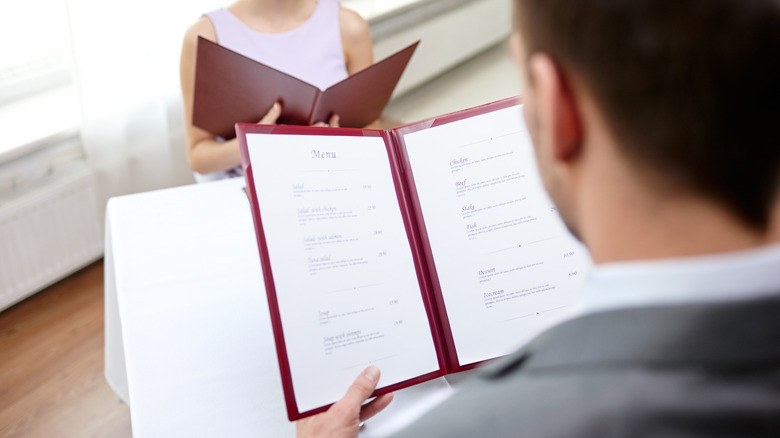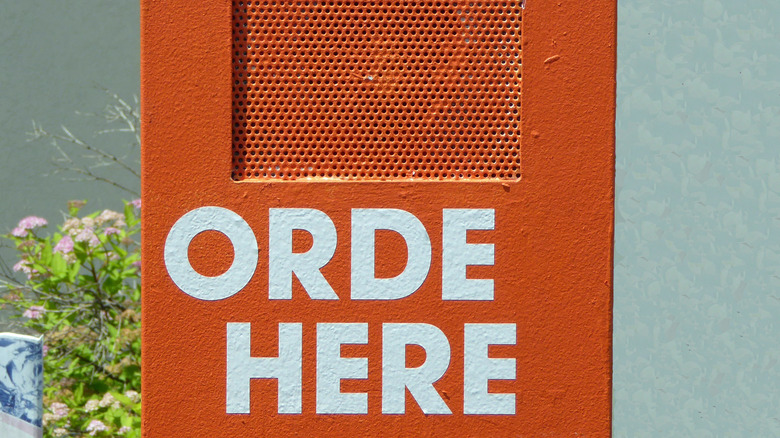Should You Still Order A Misspelled Item On A Menu?
Are American diners picky about their restaurants? The answer depends on what you mean by "picky." Do we require high-end menu items like filet mignon and lobster? Absolutely not. It is abundantly clear from the continuing success — not to mention, the impressive growth during the pandemic — of the American fast-food industry that a great many of us are perfectly happy to eat chili dogs, chicken sandwiches, burgers, and the like.
On the other hand, it cannot be said that Americans are not sticklers for cleanliness wherever we eat, at every level, from the most casual to the most fancy of dining institutions. Alright, so that puts it at one for one. But what about ... grammar and spelling? On the menu, we mean.
So, does grammar and spelling count? Specifically, do we care if we open up a restaurant menu and find our eyes stopping on misspelled words or the failure to use the Oxford comma? The answer is a bit of yes, and a bit of no, but not for the reasons you might think. Read on for the definitive guide to when you should and should not order a misspelled item off a restaurant menu.
Here is when it is and is not okay to order a misspelled menu item
First things first, if a restaurant menu does not place a comma before "and" or "or" in a series of at least three items, it should NOT have any bearing at all on the food you'll be eating. By contrast, however, a misspelled menu item COULD. But not for the reasons you might be thinking. As it turns out, a survey cited by Psychology Today suggests that misspellings on menus have no effect whatsoever on the average diner's perception of the restaurant, its menu, or its food.
But what Psychology Today was looking at, specifically, is whether misspelled menu items might turn off diners by suggesting that management is either "off its game" or perhaps generally careless (and then who knows what else they might be careless about, ew), or both. However, in a Reddit thread in which chefs were asked to identify "red flags" that diners should look out for when dining at a restaurant, Reddit user Splinkyyy pointed out that menu misspellings may actually be intentional, and it's the intentional misspellings that should raise those red flags.
"If it's misspelled on the menu, that's on purpose," they wrote. "A prime example is 'krab cakes,'" which likely refers to "cakes" made with something other than actual crab. So, there you have it. Should you order a misspelled menu item? Only if you're sure it wasn't misspelled intentionally, according to Splinkyyy.

